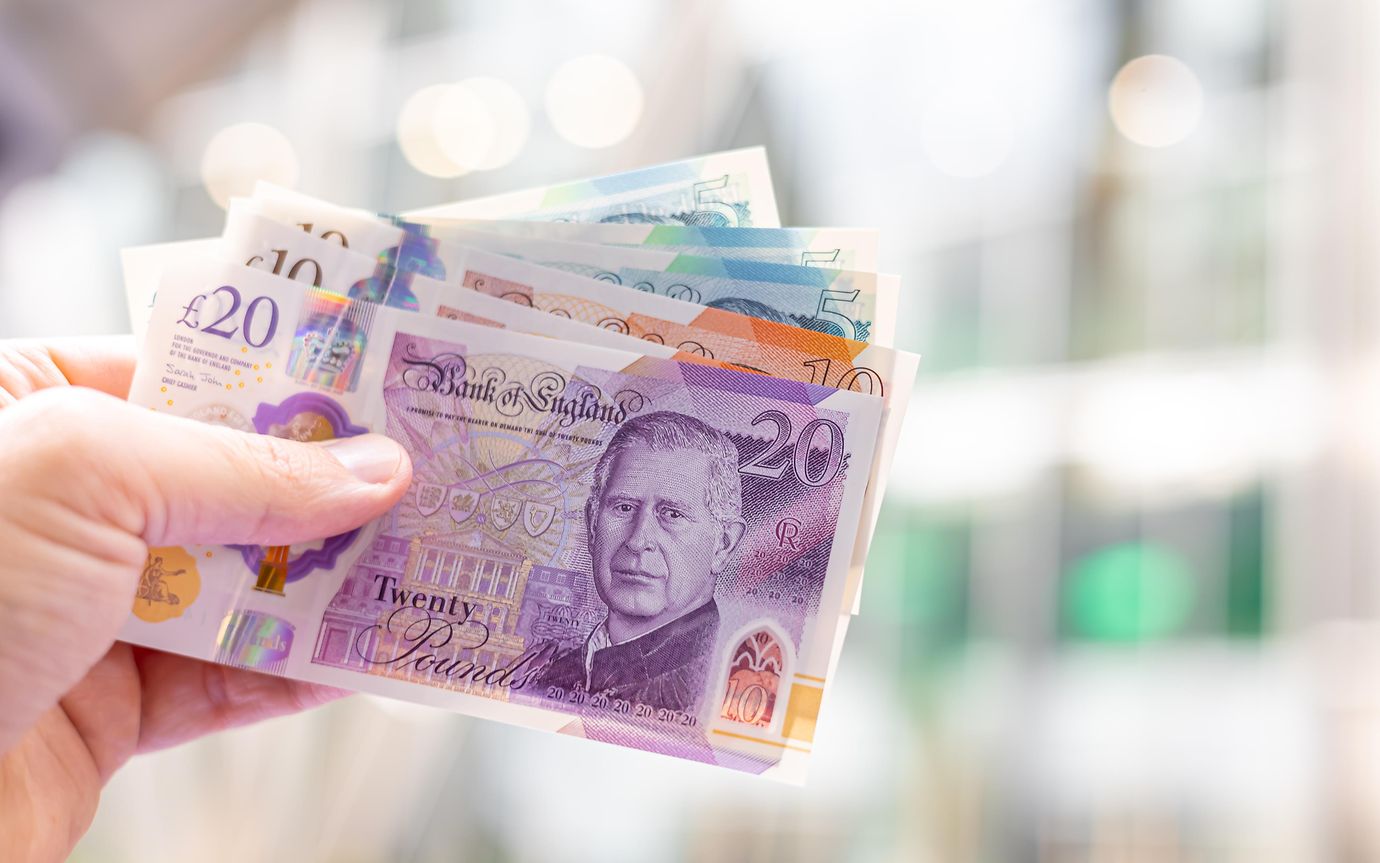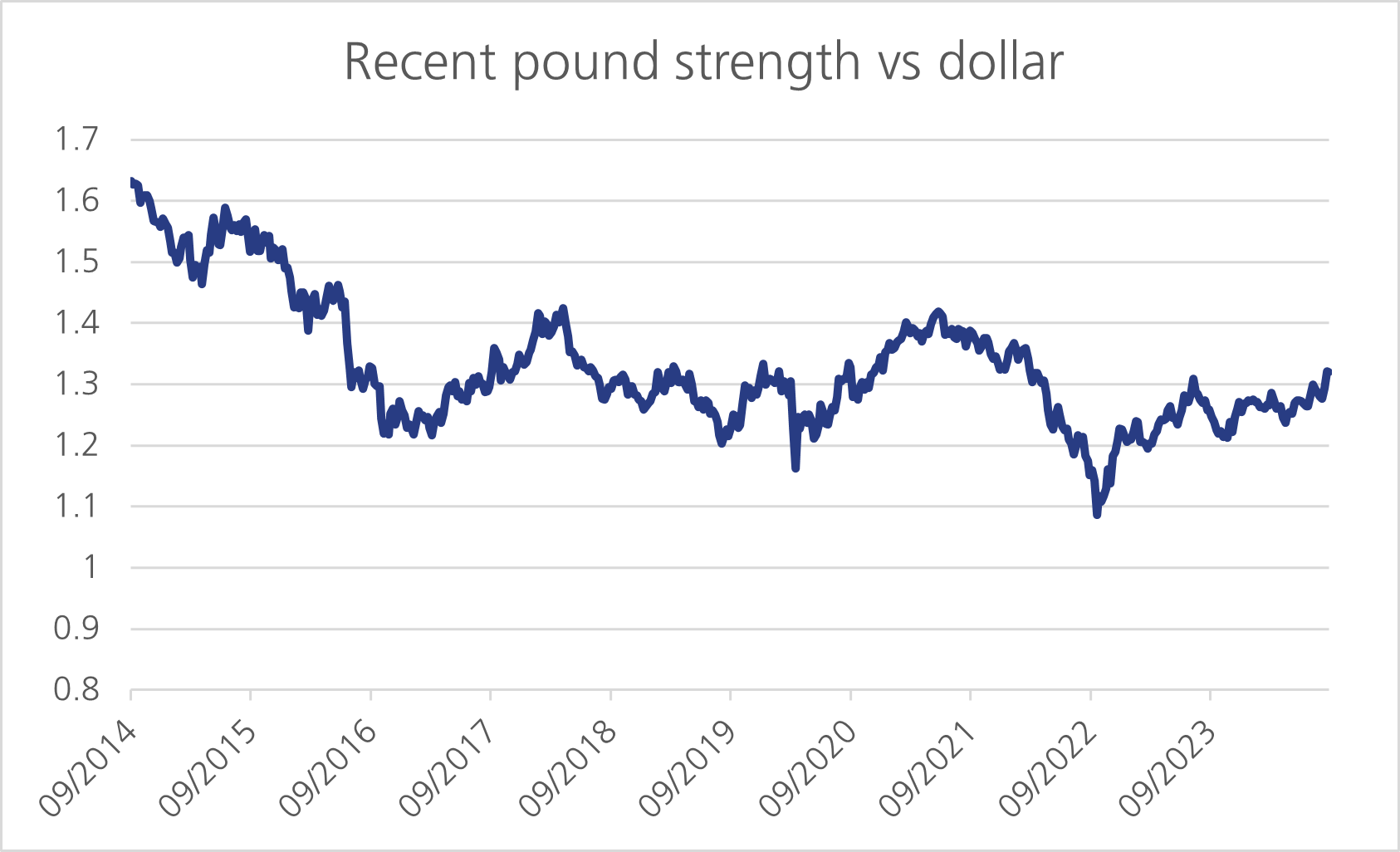
News that the pound has strengthened to its highest value against the dollar since March 2022 will be welcome to those enjoying the last of the summer holidays, as those pounds stretch further.
Since the UK’s decision to leave the European Union, the value of the pound has fluctuated – at times gaining strength only to lose it again soon after. This begs the question: will this increase in value last, or will it fade like before?

On Tuesday, Prime Minister Keir Starmer gave a speech warning that October’s budget “is going to be painful”, as he reiterated the claim that Labour inherited a £22 billion black hole from the previous Conservative government. When pressed, Starmer repeated his electoral pledge that there will be no increases on income tax, VAT or National Insurance, but did say those with “the broadest shoulders should bear the heavier burden”.1 Chancellor Rachel Reeves has not ruled out an increase on inheritance tax, capital gains tax, or reforming tax relief on pensions. The government also announced cost-cutting measures such as scrapping a cap on social-care payments and withdrawing the winter-fuel allowance for 10 million pensioners.
While speculation is mounting on what taxes will most likely rise, from a broader economic perspective, we are unlikely to see a stimulative fiscal policy stance any time soon. This likely means a lower of supply of UK government bonds, or Gilts, providing support to the pound. Furthermore, news of a better economic partnership between Germany and the UK highlights the potential for less trade friction which could boost long-term prospects.
The Federal Reserve’s (Fed) annual meeting in Jackson Hole has also had an impact on the value of the pound and the dollar. Last week, Chairman Jerome Powell laid the groundwork for a cut in interest rates at the Fed’s September meeting. Powell highlighted that inflation has been steadily declining since it peaked in 2022, and expressed confidence that it is on track to reach the Fed’s 2% target. He spent most of his speech reiterating the two-sided impacts of monetary policy, focusing on weaker labour market dynamics rather than inflation. The August Consumer Price Index reading came in at 2.9% for the year up to July, but more pertinently, shorter-term indicators showed a meaningful cooling of price pressures.2 The Fed’s mandate is for stable prices and maximum employment. Powell’s latest speech shows a clear shift of focus from the former to the latter.
In addition to keeping fiscal policy tight by raising taxes, the number of expected rate cuts by the Bank of England (BoE) has remained moderate. Earlier this month, members delivered a 0.25% cut. However, the UK’s inflation rate came in slightly higher than expected in August, with overall prices increasing by 2.2% this year through July, according to the Office for National Statistics (ONS).3 The BoE is now forecasting inflation will tick up to 2.75% over the coming months, before falling below 2% next year as favourable base effect diminish.
The divergence between forecasted interest rate cuts in the US, where markets currently price in that interest rates will decrease by 1% in the US by the end of the year compared to a further one or two 0.25% cuts in the UK, help explain why the pound has strengthened against the dollar.
The divergence between forecasted interest rate cuts in the US, where markets currently price in that interest rates will decrease by 1% in the US by the end of the year compared to a further one or two 0.25% cuts in the UK, help explain why the pound has strengthened against the dollar.
Last week, we covered the US presidential election and Kamala Harris’s and Donald Trump’s economic plans. While some Democrats initially expressed reservations about Harris, her popularity has grown more than expected. However, the race remains close, with FiveThiryEight giving Harris a slight advantage over Trump as November approaches.
The closeness of the race increases the chances of a divided Congress, which could limit government spending and make it difficult to pass new policies. Despite this, the current US fiscal approach remains more flexible than that of the UK, largely due to significant military and healthcare expenditures.
There are deeper factors contributing to sterling’s recent strength, but it is too early to say if these will fade over time. We continue to monitor the dollar/pound relationship very closely, but given the sharp, recent strength, we expect a breather until investors gain more confidence about the direction. For the moment, the interest rate differentials move in the UK’s favour, and the fiscal situation broadly favours the pound.
[1] BBC, https://www.bbc.com/news/articles/clyn01p5npgo
[2] Bureau for Labor Statistics
[3] Office for National Statistics, https://www.ons.gov.uk/economy/inflationandpriceindices/bulletins/consumerpriceinflation/july2024
This communication is provided for information purposes only. The information presented herein provides a general update on market conditions and is not intended and should not be construed as an offer, invitation, solicitation or recommendation to buy or sell any specific investment or participate in any investment (or other) strategy. The subject of the communication is not a regulated investment. Past performance is not an indication of future performance and the value of investments and the income derived from them may fluctuate and you may not receive back the amount you originally invest. Although this document has been prepared on the basis of information we believe to be reliable, LGT Wealth Management UK LLP gives no representation or warranty in relation to the accuracy or completeness of the information presented herein. The information presented herein does not provide sufficient information on which to make an informed investment decision. No liability is accepted whatsoever by LGT Wealth Management UK LLP, employees and associated companies for any direct or consequential loss arising from this document.
LGT Wealth Management UK LLP is authorised and regulated by the Financial Conduct Authority in the United Kingdom.